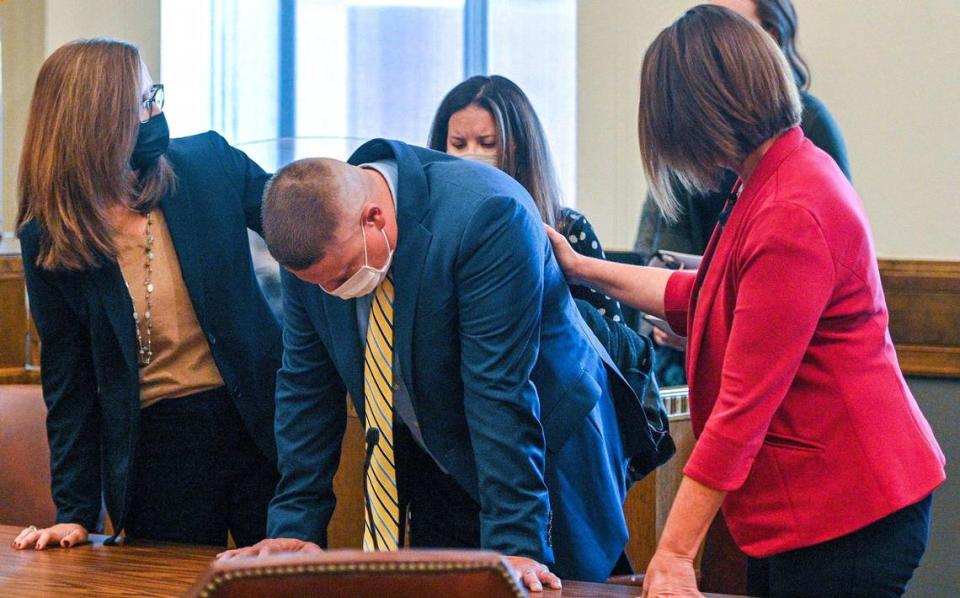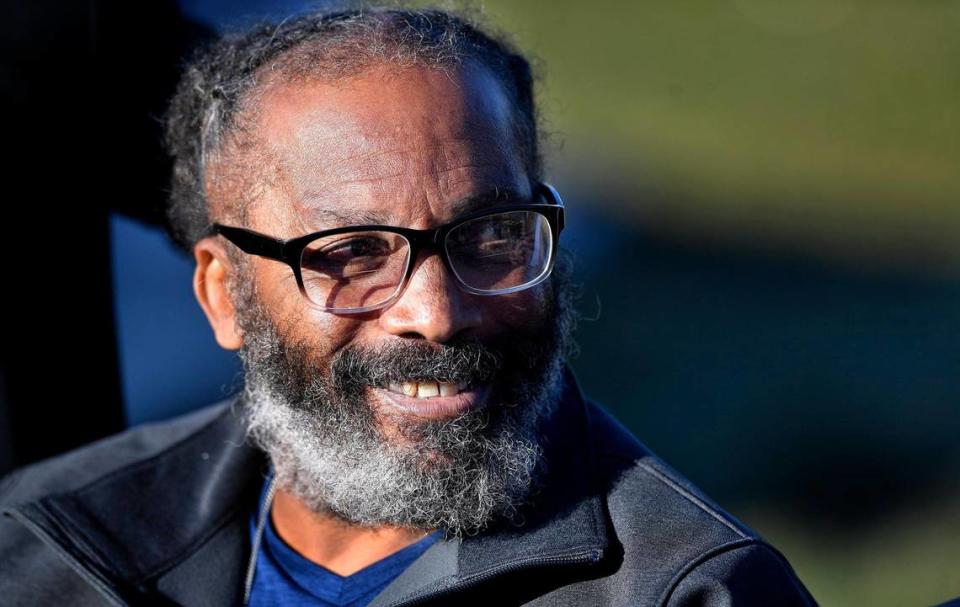On The Vine: Spark change, blaze a path

We back!
Hope you turned off the news, silenced the phones and manged to have a restful holiday.
Ready to dive back in?
Around the block

KCPD shootings of Black men have been a problem for years. Will one verdict change that?
Since we last spoke the spotlight that’s shone on the Kansas City Police Department has only gotten hotter.
Former KCPD detective Eric DeValkenaere was convicted of second-degree involuntary manslaughter and armed criminal action in the killing of 26-year-old Cameron Lamb. He faces up to four and 15 years in prison on respective charges.
DeValkenaere was the first Kansas City police officer in nearly 80 years to face criminal charges in the death of a Black man. That’s in a city where police have killed about four people a year. In a decade of fatal police shootings, 60% of those killed were Black in a city that is 30% Black.
The burning question: Does the historic verdict mean anything will change within KCPD and its relationship with Kansas City’s Black and brown communities?
The Star’s Glenn Rice, J.M. Banks, Eric Adler, Mike Hendricks, and David Hudnall have the story:
The four shots that rang out from a white Kansas City policeman’s gun on Dec. 3, 2019, changed lives and, as of Friday, Kansas City history.
For the first time ever, a white Kansas City police officer was found guilty of killing a Black man.
In one barbershop in Westport, Black Kansas Citians expressed surprise that the officer was found guilty, but were quick to point out that he could still be let off easy at sentencing. And that policing problems in an American city are bigger than one cop.
And some of those who know the KCPD best — Black officers in the department, and attorneys who have faced off against the department in court or on a protest line — expressed serious skepticism of real change coming soon.
“I don’t think KCPD can change, not under the current leadership,” said one Black officer, who has been with the police department for nearly a decade and asked to remain anonymous because he feared retaliation for speaking to The Star. “You can’t change something that’s been so systemic for this long.”
“If nothing else, “ said Lauren Bonds, legal director with the National Police Accountability Project, a New Orleans-based nonprofit that helps protect people’s civil rights in their encounters with law enforcement, “it signals to police officers that the DA (district attorney) is willing to bring these charges in the future.”
Dive deeper here...
KCPD Chief Rick Smith will retire months earlier than he previously told police board
Police Chief Rick Smith said ‘bad guy’s dead’ minutes after KC detective killed Cameron Lamb
‘It pains me’: Kansas City mayor reacts to police chief’s Cameron Lamb comment

Kevin Strickland: Free at last
Just ahead of the Thanksgiving holiday, a Missouri judge vacated the 1979 conviction of Kevin Strickland, who spent more than 40 years in Missouri prisons for a crime he did not commit.
Read The Star’s coverage around his release here...
‘I remember every single second of those 43 years’: A conversation with Kevin Strickland
What to know about Kevin Strickland and his 40-year fight for freedom
‘Welcome home brother’: Kevin Strickland’s family thrilled judge orders his release
Donors gave $1.6 million to Kevin Strickland. How much will he actually get to keep?
Beyond the block

The Supreme Court has signaled a potential end to Roe v. Wade
Conservative justices on the Supreme Court seem inclined to uphold a Mississippi law that prohibits abortions after 15 weeks of pregnancy. To do so, the court would have to all but send five decades of precedent down the river. The case puts the landmark ruling in Roe v. Wade, in jeopardy.
Melissa Quinn writes for CBS News:
The future of abortion rights faced its most consequential test in nearly 30 years Wednesday when the Supreme Court convened to hear a high-stakes showdown taking aim at early five decades of precedent, with the conservative justices appearing inclined to let stand a Mississippi law at the heart of the case and pave the way for states to impose more stringent limits on abortion...
The case before the justices is the most consequential abortion dispute to come before the court in a generation, and pro-abortion rights advocates warn a decision upholding the 2018 law would allow states to ban the procedure entirely.
Mississippi, meanwhile, has used the case, known as Dobbs v. Jackson Women’s Health Organization, as a vehicle to ask the justices to overturn Roe and Casey. Scott Stewart, Mississippi’s solicitor general, said those decisions “haunt our country” and have “poisoned the law.”
While members of the conservative wing of the bench signaled a willingness to allow states to curb abortion rights, the three liberal justices warned such a shift — occurring after the Supreme Court’s conservative majority grew to 6-3 — would have negative consequences for the public’s perception of the court.
Also check out...
90 seconds of video will be key in trial of Kimberly Potter, the officer who killed Daunte Wright
Barbadians celebrate the birth of a republic and bid farewell to the Queen
For the culture

Virgil Abloh, Path-Blazing Designer, Is Dead at 41
I have no better words than The New York Times’ Venessa Friedman:
Virgil Abloh, the barrier-breaking Black designer whose ascent to the heights of the traditional luxury industry changed what was possible in fashion, died on Sunday in Chicago after a two-year battle with cardiac angiosarcoma, a rare cancer. He was 41.
The artistic director of Louis Vuitton men’s wear as well as the founder of his own brand, Off-White, Mr. Abloh was a prolific collaborator with outside brands from Nike to Evian, and a popular fashion theorist whose expansive and occasionally controversial approach to design inspired comparisons with everyone from Andy Warhol to Jeff Koons.
Mr. Abloh transformed not just what consumers wanted to wear, bridging hypebeast culture and the luxury world, but what brands wanted in a designer — and the meaning of “fashion” itself.
For him clothes were not garments but fungible totems of identity that sat at the nexus of art, music, politics and philosophy. He was a master of using irony, reference and the self-aware wink (plus the digital world) to re-contextualize the familiar and give it an aura of cultural currency.
Don’t miss this...
“You can do it too” - Virgil Abloh
Did someone forward this newsletter to you? You can sign-up here. If you’d prefer to unsubscribe from this newsletter, you can do so at any time using the “Unsubscribe” link at the bottom of this message.

 Yahoo Movies
Yahoo Movies 
